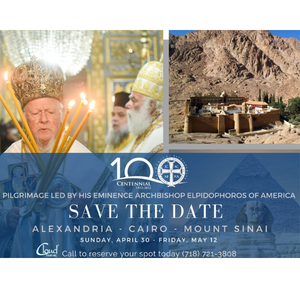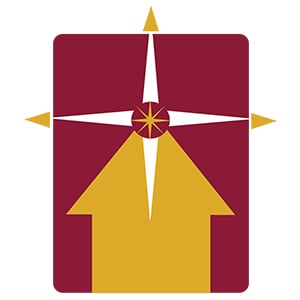Sunday, January 1 - Circumcision of Christ - Περιτομή Ιησού Χριστού
Basil the Great - Μέγας Βασίλειος
Οrthros - Ορθρος ... 8:30 a.m.
Divine Liturgy - Θεία Λειτουργία ... 9:30 a.m.
Monday, January 2
Saint Barbara Varsity Division Basketball vs. Holy Trinity (Wtby) at Waterbury ... 1:45 p.m.
Saint Barbara Youth Division Basketball vs. Stamford United at Bridgeport ... 4:00 p.m.
Athletics Practice-Προπόνηση Αθλητικών-Volleyball - CT Sports Center, Woodbridge ... 7:30 p.m.
Wednesday, January 4
Philoptochos Society Meeting - Συνεδρίασις Φιλοπτώχου ... 7:00 p.m.
A.H.E.P.A. Meeting - Συνεδρίασις Α.Χ.Ε.Π.Α. ... 7:00 p.m.
Athletics Practice - Προπόνηση Αθλητικών -
Youth Division & Varsity Basketball - CT Sports Center, Woodbridge... 7:30 p.m.
Thursday, January 5
The Royal Hours of Theophany - Μεγάλαι Ωραι Των Θεοφανείων ... 9:00 a.m.
Vesporal Christmas Liturgy of Saint Basil the Great - Εσπερινή Θεία Λειτουργία ... 10:15 a.m.
The Service of the Blessing of the Waters - Αγιασμός ... 11:30 a.m.
Greek Language School - Ελληνικό Σχολείο ... 4:30 p.m.
Choir Rehearsal - Choir Loft - Πρόβες Χωροδίας ... 6:45 p.m.
Friday, January 6 - The Feast of Theophany - Τα Άγια Θεοφάνεια
Orthros - Ορθρος ... 9:00 a.m.
Divine Liturgy - Θεία Λειτουργία ... 10:00 a.m.
The Service of the Great Blessing of the Waters - Ο Μέγας Αγιασμός Των Θεοφανείων ... 11:00 a.m.
Saturday, January 7 - Synaxis of Saint John the Baptist - Του Αγίου Ιωάννου Του Προδρόμου
Orthros - Ορθρος ... 8:30 a.m.
Divine Liturgy - Θεία Λειτουργία ... 9:30 a.m.
Saint Barbara Varsity Division Basketball vs. Assumption at Bridgeport ... 2:00 p.m.
Saint Barbara Youth Division Basketball vs. Assumption at Bridgeport ... 4:00 p.m.
Sunday, January 8 - Sunday After the Feast of Theophany - Κυριακή Μετά Τα Άγια Θεοφάνεια
Οrthros - Ορθρος... 8:30 a.m.
Divine Liturgy - Θεία Λειτουργία... 9:45 a.m.
Sunday School - Κατηχητικό Σχολείο ... 9:45 a.m.
Blessing and Cutting of the Parish Vasilopita - Ευλογία και Κοπή της Κοινοτικής Βασιλόπιτας ... 11:15 a.m.
General Assembly - Γενική Συνέλευση ... 12:00 p.m.
Coffee Fellowship
Saint Barbara Youth Division Basketball vs. Holy Trinity (NR) at Bridgeort ... 2:00 p.m.






 His Eminence Archbishop Elpidophoros of America is pleased to announce the 2023 Archdiocesan Pilgrimage to the Ancient Patriarchate of Alexandria and Mount Sinai.
His Eminence Archbishop Elpidophoros of America is pleased to announce the 2023 Archdiocesan Pilgrimage to the Ancient Patriarchate of Alexandria and Mount Sinai.
 PLWopa4I5g3xCevnEmg9cAl8-6EBX6DO85
PLWopa4I5g3xCevnEmg9cAl8-6EBX6DO85